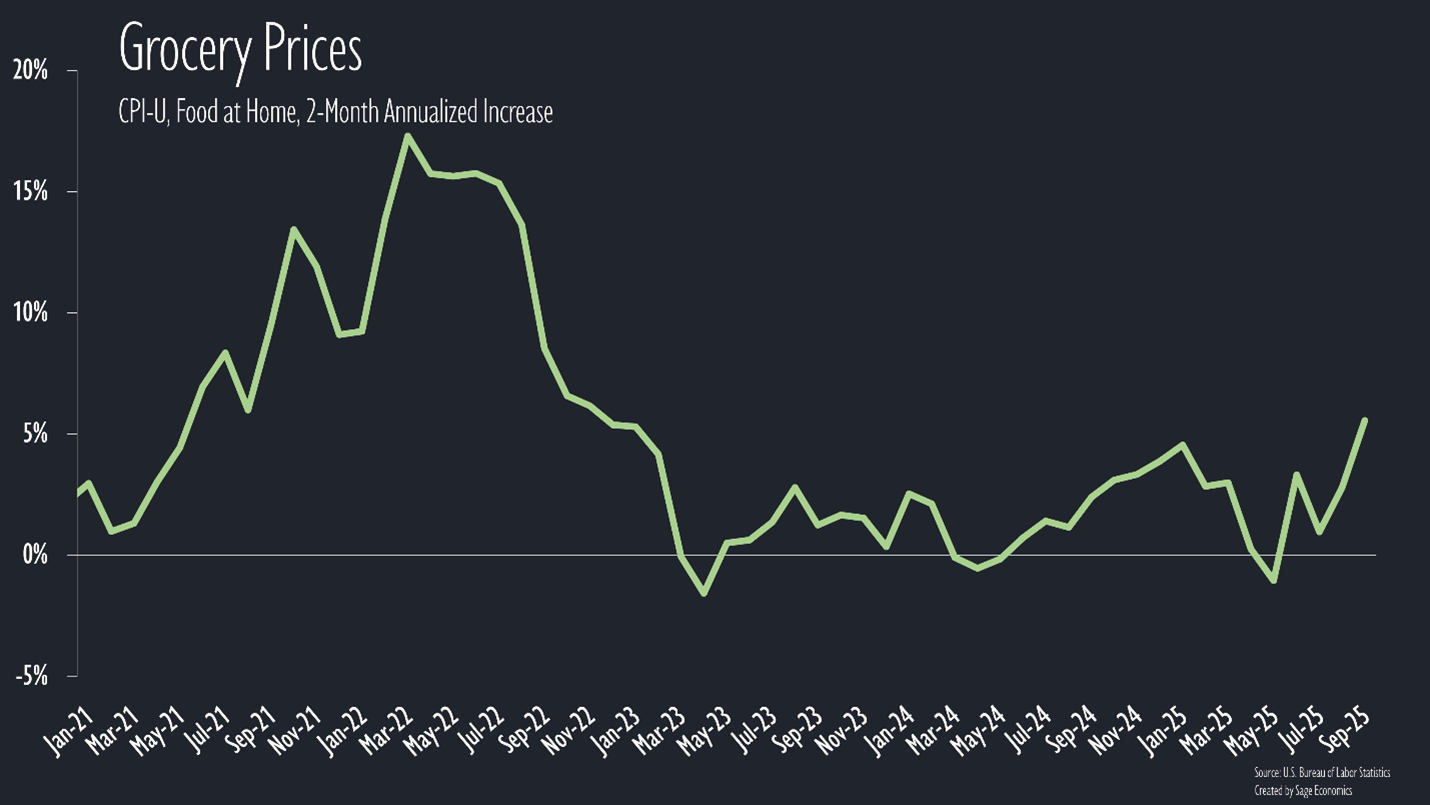Tariff Tuesday
Pasta policy, grocery prices, & more
Your regularly scheduled programming, Construction Trend Tuesday, will return next week. For now, it’s Tariff Tuesday! Enjoy our musings on the latest trade policy developments.
Grocery Tariffs Rolling Back
The White House is reducing tariffs on dozens of agricultural products in an effort to lower food prices, which kind of makes you wonder why they were implemented in the first place. Exempted foods will include bananas, coffee, avocados, tomatoes, beef, and coconuts, among several others. You can see the full list here.
As many have noted—now including the White House—several of these foods simply cannot be produced at scale in the U.S.
Grocery prices rose at a far-too-fast 5.6% annualized pace from July to September. That’s the largest two-month increase since 2022, though food prices were rising far faster back then.
Protecting America’s Noodle Makers
Italian Pasta Is Poised to Disappear From American Grocery Shelves, reports the WSJ. If you’re wondering if that has anything to do with tariffs, yes, of course it does.
The Trump administration, based on the preliminary outcome of an investigation, plans to impose 92% anti-dumping tariffs on Italian pasta imports. That brings the total tariff on Italian pasta to 107%, which effectively amounts to a ban.
“Dumping” refers to when a country exports a product at less than cost in order to gain a competitive advantage over time. A traditional example: Country A sells steel at an artificially low price to Country B, and that devastates Country B’s domestic steel industry.
Economists are generally skeptical of dumping complaints, but at least with something like steel you can argue it’s an important domestic industry. Protectionist policy for U.S. pasta makers is a harder noodle to swallow.
This is not a new fight—U.S. pasta makers regularly file complaints about Italian pasta pricing—but this would be a far more severe response than usual.
That said, hold off on panic-buying your De Cecco. The proposed 92% pasta tariff won’t go into effect until January (if at all), as the investigation is still in the preliminary stages.
Tariffs Reduce Long Run Inflation, But in the Worst Way Possible
A new working paper from the San Francisco Fed suggests that tariffs lower inflation. That may seem like good news—tariff defenders have been quick to celebrate it—but the lower inflation is the result of higher unemployment and slower economic growth.
This analysis is based on a review of 150 years and contradicts the popular theory that tariffs cause higher inflation by raising import prices. In short, the argument is that the reduction in spending caused by new tariffs has a bigger effect on inflation than higher effective import prices do.
Should you buy the argument? It’s plausible, but there’s plenty of reason for skepticism.
First, sizable changes to tariffs are really rare, even when looking at 150 years of U.S. history. We’re talking about five events over a century and a half.
Second, the economy is wildly different than it was during most of those tariff changes. Imports represent a larger share of GDP today, manufacturing a smaller one, and monetary policy is a whole different animal these days.
Third, past tariff shocks have occurred during varying economic environments (just before the Great Depression, post WWII, etc.). The present economy, still in recovery from the worst inflation in forty years, presents its own uniqueness.
The upshot: this is an interesting finding, but we shouldn’t assume it has any kind of predictive power.
What’s Next?
The BLS will release September jobs data on Thursday and, as always, we’ll cover that in its own post. This week also brings us new construction spending data, a consumer confidence update, some housing stats, and more.
We’ll cover all of that in Week in Review, our every-Friday post that gives you everything you need to know about the economy in a breezy, five-minute read.
Week in Review is only for paying subscribers. If that’s not you and you want it to be, just click the subscribe button.




